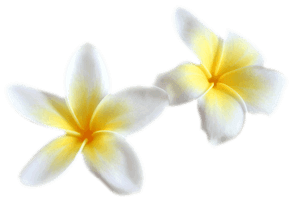- Home
- /
- Uncategorized
- /
- Urgent action needed to address rise in suicide for Pacific peoples

Urgent action needed to address rise in suicide for Pacific peoples
26 AUGUST 2019
STATEMENT FROM LE VA
Today the Chief Coroner’s release of provisional suicide statistics showing 685 people died by suspected suicide in the last year, also showed a disproportionate increase in Māori and Pasifika deaths.
Le Va, a Pacific organisation whose work focusses on wellbeing and are leading work to prevent suicide, send their alofa (love) to those grieving, and are strongly advocating for urgent action to address suicide in Aotearoa.
Le Va chief executive and clinical psychologist, Dr Monique Faleafa says “the increase in deaths for Pasifika peoples is unacceptable. The time for raising awareness has passed, it is now time for action and making sure every Pasifika person knows what role they can play in preventing suicide.”
“For the people we have lost to this taniwha called suicide, we all pray and grieve with their families. They are in our thoughts and prayers and now they must be in all our actions,” says Dr Faleafa.
Today’s Chief Coroner’s report shows that the rate of suspected suicide for Māori was 28.23 deaths per 100,000 persons compared to 13.46 of non-Māori and 11.49 for Pacific. Whilst the Pacific rate remains below New Zealand’s overall rate, there has been a concerning 3.7% increase over the past year, with young Māori and Pacific people aged 15-24 years suspected suicide rate still disproportionately higher compared to other ethnic groups.
“These numbers need to be seen in context, and over time. In 2012, the Pacific suicide rate was the highest we’ve had in a decade. Le Va introduced the national FLO: Pasifika for Life community-based suicide prevention programme a year later (2013), and since then we saw a dramatic decline in Pasifika suicides over six years to a rate of 7.7 in 2018, which is the lowest rate we have on record. We’ve contributed to that decline with the help of hundreds of people across New Zealand who are saving lives every week – Pasifika people working together and across sectors was key,” says Dr Faleafa.
She says the increase continues to demonstrate the need to prioritise Pasifika suicide prevention and to better understand the risk factors affecting Pasifika communities.
Clinical psychologist and research lead for Le Va, Denise Kingi-Uluave asserts that factors that lead to suicide are complex. She says, “there is a range of risk and protective factors that differ depending on the situation and individual characteristics. What we have discovered is that factors which can put Pasifika peoples at risk of suicide are often different from what is identified in the general literature, which is ground-breaking because previous mainstream screening tools and interventions have missed these unique Pasifika risk factors.”
In response to the Government’s Inquiry into Mental Health and Addictions ‘He Ara Oranga’, Le Va partnered with Te Rau Ora and the Mental Health Foundation on a submission called ‘Five Key Solutions to Suicide Prevention in New Zealand’. The solutions outlined are achievable and should be urgently actioned. The Government is already working on many of the suggestions in the submission. Le Va says the partners are encouraged to see work taking place to address the social determinants of suicide including equity, poverty, violence and the legacy of colonisation.
Le Va wants to support all Pasifika people to see their life is worth living, and to unleash their full potential. One way to do this is to equip Pasifika people with skills to prevent suicide in their own families, through Le Va’s FLO and LifeKeepers programmes.
Leilani Clarke, who leads the FLO programme identified that, other than education and training, there are things we can all be doing now to prevent suicide such as, “creating safe spaces that enable families to talk and communicate better around the hard topic; growing strong families that are grounded in alofa and courage to respond to distress with compassion instead of fear; understanding the benefits of our cultural values and applying them to connect with one another; and finding practical ways to support each other through spirituality, to develop a sense of acceptance and belonging in our communities.”
Dr Faleafa advocates that preventing suicide is everybody’s business and every individual’s effort makes a huge difference.
“Together we can work towards building communities of care, where everyone feels safe, accepted, and supported. We know that suicide is a complex issue, but it is preventable if we all work together.”
END
Helplines
- 1737 – NEED TO TALK? Free call or text 1737 anytime, 24 hours a day, 7 days a week. You’ll get to talk to (or text with) a trained counsellor. This service is completely free.
- Depression Helpline 0800 111 757 – When you’re feeling down and would like to talk to a trained counsellor.
- Youthline 0800 376 633 – Free text 234 or email: talk@youthline.co.nz.
- What’s Up 0800 942 8787 – For 5-18 year olds; 1pm to 11pm.
- Kidsline 0800 54 37 54 (0800 KIDSLINE) – For children up to 14 years of age; 4pm to 6pm weekdays.
- OUTLine NZ 0800 688 5463 (0800 OUTLINE) – Support for sexuality or gender identity issues.
Additional resources
- View information and resources about LifeKeepers
- View information and resources about FLO
- View information and resources about Mental Wealth
- View information and resources about Le Va






